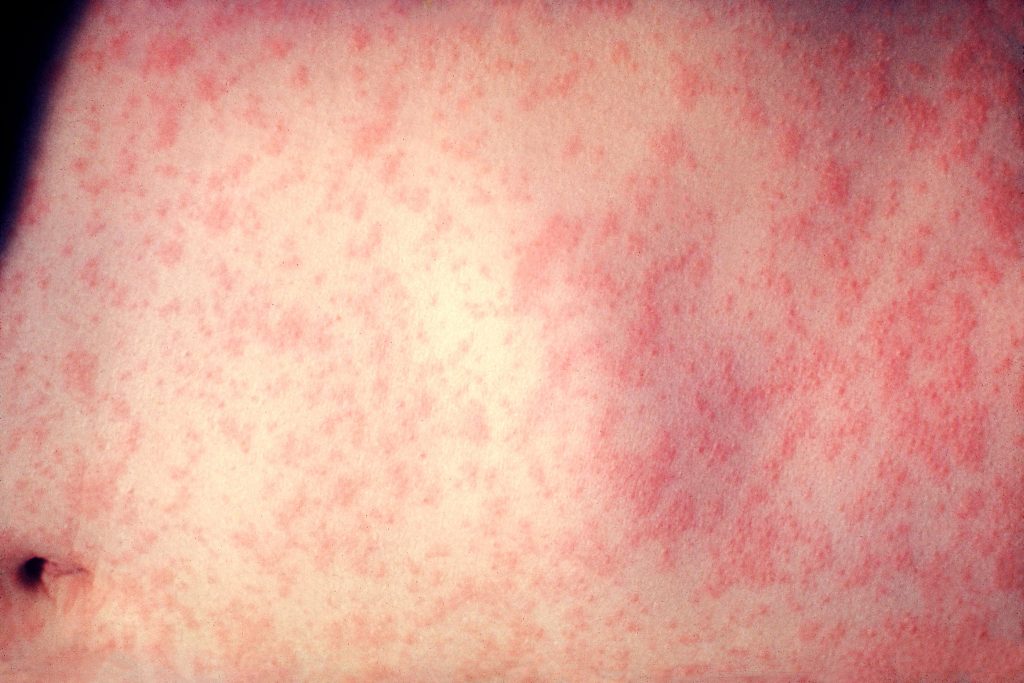Canada’s top public health official is urging unvaccinated and under-vaccinated Canadians to get immunized against measles as cases of the highly contagious disease rise in Ontario and Quebec.
Dr. Theresa Tam, Canada’s Chief Public Health Officer, warned that the country is experiencing an increase in measles activity linked to outbreaks in its two largest provinces. While some cases were initially tied to international travel, others have resulted from domestic exposure, raising concerns about community transmission.
Last week, Toronto Public Health issued an alert after a passenger on Turkish Airlines Flight TK17 (Istanbul to Toronto) tested positive for measles. The flight arrived at Toronto Pearson International Airport on January 22, potentially exposing others to the virus.
According to a January 16 report by Public Health Ontario, 65 cases of measles (39 confirmed and 26 probable) have been reported in the province since 2024, with two new cases recorded since December 19, 2024.
Key findings from the report include:
- All cases involved individuals born in or after 1970.
- 44 cases were reported in children and adolescents, while 21 were in adults.
- 41 children and 11 adults were unvaccinated, while the immunization status of others remains unknown.
- A small number of cases occurred in individuals who were partially or fully vaccinated.
Cases have been reported across 11 public health units in Ontario, with the highest number (26 cases) in the Southwestern Public Health Unit, which serves Oxford County, Elgin County, and St. Thomas. Other regions with reported cases include:
- Hamilton: 6 cases (including one fatal case in a child under five in 2024)
- Durham: 1 case
- Halton: 3 cases
- Peel Region (Brampton, Mississauga, and Caledon): 3 cases
- Toronto: 10 cases
- York Region: 1 case
Additional cases were reported in Grand Erie, Grey Bruce, Middlesex-London, and Windsor-Essex.
Nine individuals were hospitalized due to measles, including eight children. Tragically, one child died from the illness. All hospitalized children, including the fatality, were unvaccinated.
18 cases were linked to travel, with two leading to further transmission in spring 2024.
- 3 cases had unknown sources of exposure.
- 38 cases (12 confirmed, 26 probable) were connected to an out-of-province exposure in New Brunswick, affecting Southwestern, Grey Bruce, and Grand Erie public health units.
Measles is a highly contagious, airborne disease that can lead to severe complications, including respiratory failure, encephalitis (brain swelling), pregnancy complications, and death. According to the Public Health Agency of Canada (PHAC), 90% of unvaccinated individuals or those without prior immunity can contract the virus if exposed.
“I’m concerned that vaccination rates for measles among children are not high enough in some areas of Canada to prevent the spread of measles,” Dr. Tam said in a statement. She highlighted a recent study in the Canadian Journal of Public Health showing a decline in measles vaccination coverage among children in 2023 compared to 2019.
The measles, mumps, and rubella (MMR) vaccine is highly effective, with two doses providing nearly 100% protection. Health Canada recommends the first dose at 12 or 15 months of age and the second dose between ages four and six.
Adults and older children who are unvaccinated or under-vaccinated are encouraged to consult their healthcare providers about starting or completing the vaccine series. However, booster doses are not recommended for everyone, particularly immunocompromised individuals or pregnant women.
Measles symptoms include fever, red blotchy rash, red and watery eyes, and cough. While most people recover at home, severe complications can occur, especially in children under five, immunocompromised individuals, and unvaccinated pregnant women.
Public health officials advise anyone experiencing measles symptoms to stay home from school or work, contact their healthcare provider, and notify public health if they lack a family doctor or cannot access one.
The measles vaccine has saved more than 60 million lives worldwide since 2000, according to the World Health Organization. Despite its proven effectiveness, declining vaccination rates in some regions have led to preventable outbreaks, underscoring the importance of immunization.

